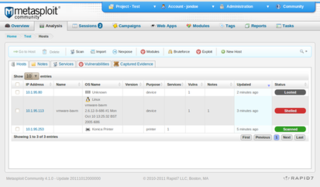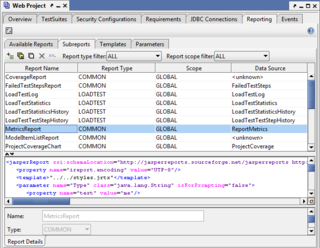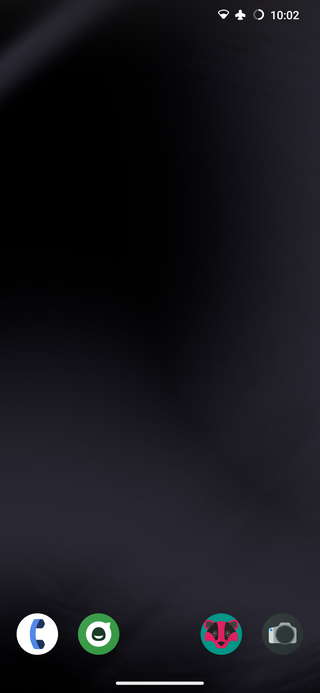
The Apache HTTP Server is a free and open-source cross-platform web server software, released under the terms of Apache License 2.0. It is developed and maintained by a community of developers under the auspices of the Apache Software Foundation.
Cross-site scripting (XSS) is a type of security vulnerability that can be found in some web applications. XSS attacks enable attackers to inject client-side scripts into web pages viewed by other users. A cross-site scripting vulnerability may be used by attackers to bypass access controls such as the same-origin policy. During the second half of 2007, XSSed documented 11,253 site-specific cross-site vulnerabilities, compared to 2,134 "traditional" vulnerabilities documented by Symantec. XSS effects vary in range from petty nuisance to significant security risk, depending on the sensitivity of the data handled by the vulnerable site and the nature of any security mitigation implemented by the site's owner network.
A penetration test, colloquially known as a pentest, is an authorized simulated cyberattack on a computer system, performed to evaluate the security of the system; this is not to be confused with a vulnerability assessment. The test is performed to identify weaknesses, including the potential for unauthorized parties to gain access to the system's features and data, as well as strengths, enabling a full risk assessment to be completed.
The Open Web Application Security Project (OWASP) is an online community that produces freely available articles, methodologies, documentation, tools, and technologies in the fields of IoT, system software and web application security. The OWASP provides free and open resources. It is led by a non-profit called The OWASP Foundation. The OWASP Top 10 - 2021 is the published result of recent research based on comprehensive data compiled from over 40 partner organizations.
Application security includes all tasks that introduce a secure software development life cycle to development teams. Its final goal is to improve security practices and, through that, to find, fix and preferably prevent security issues within applications. It encompasses the whole application life cycle from requirements analysis, design, implementation, verification as well as maintenance.

The Metasploit Project is a computer security project that provides information about security vulnerabilities and aids in penetration testing and IDS signature development. It is owned by Boston, Massachusetts-based security company Rapid7.

SoapUI is an open-source web service testing application for Simple Object Access Protocol (SOAP) and representational state transfers (REST). Its functionality covers web service inspection, invoking, development, simulation and mocking, functional testing, load and compliance testing. A commercial version, ReadyAPI, which mainly focuses on features designed to enhance productivity, was also developed by Eviware Software AB. In 2011, SmartBear Software acquired Eviware.
Chris Sullo is a security expert known as the author of Nikto Web Scanner. He is specialized in web-security and pen-testing. He was the co-founder, CFO and Treasurer of Open Security Foundation, and creator of the RVAsec security conference. He currently works as a penetration testing specialist for the IT risk firm Focal Point Data Risk.
ModSecurity, sometimes called Modsec, is an open-source web application firewall (WAF). Originally designed as a module for the Apache HTTP Server, it has evolved to provide an array of Hypertext Transfer Protocol request and response filtering capabilities along with other security features across a number of different platforms including Apache HTTP Server, Microsoft IIS and Nginx. It is free software released under the Apache license 2.0.

Yasca is an open source program which looks for security vulnerabilities, code-quality, performance, and conformance to best practices in program source code. It leverages external open source programs, such as FindBugs, PMD, JLint, JavaScript Lint, PHPLint, Cppcheck, ClamAV, Pixy, and RATS to scan specific file types, and also contains many custom scanners developed for Yasca. It is a command-line tool that generates reports in HTML, CSV, XML, MySQL, SQLite, and other formats. It is listed as an inactive project at the well-known OWASP security project, and also in a government software security tools review at the U.S Department of Homeland Security web site.
WebScarab is a web security application testing tool. It serves as a proxy that intercepts and allows people to alter web browser web requests and web server replies. WebScarab also may record traffic for further review.

w3af is an open-source web application security scanner. The project provides a vulnerability scanner and exploitation tool for Web applications. It provides information about security vulnerabilities for use in penetration testing engagements. The scanner offers a graphical user interface and a command-line interface.

Tails, or "The Amnesic Incognito Live System", is a security-focused Debian-based Linux distribution aimed at preserving Internet privacy and anonymity. It connects to the Internet exclusively through the anonymity network Tor. The system is designed to be booted as a live DVD or live USB and never writes to the hard drive or SSD, leaving no digital footprint on the machine unless explicitly told to do so. It can also be run as a virtual machine, with some additional security risks.

Kali Linux is a Linux distribution designed for digital forensics and penetration testing. It is maintained and funded by Offensive Security.The software is based on the Debian Testing branch: most packages Kali uses are imported from the Debian repositories.
A web application firewall (WAF) is a specific form of application firewall that filters, monitors, and blocks HTTP traffic to and from a web service. By inspecting HTTP traffic, it can prevent attacks exploiting a web application's known vulnerabilities, such as SQL injection, cross-site scripting (XSS), file inclusion, and improper system configuration. They can introduce a performance degradation without proper configuration and tuning from Cyber Security specialist. However, most of the major financial institutions utilize WAFs to help in the mitigation of web application 'zero-day' vulnerabilities, as well as hard to patch bugs or weaknesses through custom attack signature strings.
Milton Smith is an American computer security application developer, researcher, and writer. Smith is best known for his role leading Java platform security at Oracle during a period of high-profile security incidents in the fall of 2012. Due to the climate around Java security, in 2013 Smith was invited to present by Black Hat leadership in a closed session under Non-Disclosure Agreement to top industry leaders. In the same year Smith established the first ever full security track at a software developers conference, JavaOne, Oracle's premier conference for Java software developers in San Francisco, California(USA).
Code Dx, Inc. was an American software technology company active from 2015 to 2021. The company's flagship product, Code Dx, is a vulnerability management system that combines and correlates the results generated by a wide variety of static and dynamic testing tools. In 2021, the company was acquired by Synopsys.

RSS Guard is a free and open-source news aggregator for web feeds and podcasts. It is written in C++ and uses Qt, which allows it to fit with the look and feel of different operating systems while remaining cross-platform. It includes a file downloader, advanced network proxy configuration, and supports external media viewing tools.

DivestOS is an operating system based on the Android mobile platform. It is a soft fork of LineageOS that aims to increase security and privacy with support for end-of-life devices. As much as possible, it removes unnecessary proprietary Android components and includes only free-software.

Burp Suite is a software security application used for penetration testing of web applications. Both a free and a paid version of the software are available. The software is developed by the company PortSwigger. The suite includes tools such as a proxy server, an indexing robot, an intrusion tool, a vulnerability scanner and an HTTP repeater.










